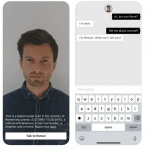Understanding how all businesses can benefit from voice analytics

Voice and speech analytics refers to the process of analyzing recorded conversations such as phone calls to gain insights into customer behavior and call quality, often utilizing AI by employing a Natural Language Processing (NLP) engine that uses context and emotional clues to determine more accurately what is being said.
In utilizing voice analytics solutions, businesses are now able to spot keywords and phrases, as well as detect sentiment and emotional context using pitch, pacing, and language clues to observe whether a conversation is going in the right direction or if it’s going downhill. By evaluating the tone of a customer’s voice, businesses can assess whether their customers are satisfied, annoyed, or upset. 82 percent of customers now consider no longer engaging with a business if they feel they have had a poor customer experience, so understanding potential issues before they arise may be the single most valuable thing a business can do to retain customers.
How AI and computer vision can help retailers to compete [Q&A]

The rise of online retail coupled with the pandemic have brought about some unprecedented changes to the retail landscape in recent years.
But as consumers now start to venture back into stores, how can retailers make use of technology to effectively compete with their online counterparts and with other brick-and-mortar businesses?
Why solving the identity management crisis facilitates the adoption of digital transformation

Identity data is frequently stored by organizations using a variety of sources, formats, and protocols, sometimes making it impossible to access essential identity information needed for security and business decisions. Without precise identity data, systems cannot decide what users should and should not be able to access which resources. Even worse, to make life easier for the admins, sometimes the default is overextending access and over-privileging accounts. This raises the possibility of a successful breach, as well as the possibility that it will go unnoticed for a longer period of time.
The number of identities linked to companies has also been increasing exponentially -- a recent study by Gartner Peer Insights found that 60 percent of organizations have more than 21 identities per user.
Critical infrastructure cyberattacks: What are the implications of their increasing prevalence?

Over the past couple of years, there have been a growing number of cyber attacks on critical infrastructure around the world. Most recently, Estonia was subjected to its most extensive cyberattack since 2007, apparently in retaliation to the country removing Soviet-era monuments from public places. Earlier this year, Costa Rica had to declare a state of emergency after a Russian-speaking ransomware gang threatened to overthrow the government in the wake of two cyberattacks. In July last year, South Africa’s ports were almost totally shut down after a ransomware attack.
While these attacks are of varying severity -- Estonia experienced minimal disruptions to critical websites while Costa Rican health officials were unable to access critical healthcare records and tax systems were frozen for weeks -- they show that cybercrime is no longer just about obtaining data. Instead, cybercrime is being used against real-world infrastructure and with very real consequences.
How decentralized storage can help prevent data breaches [Q&A]

According to a recent IBM report the average cost of a data breach is now $4.35 million. If enterprises don't take steps to protect personal data effectively they risk losing not just money but also the trust of their customers.
We spoke to Saswata Basu, founder and CEO of 0Chain, to discuss how decentralized storage can help to address the problem.
Digital afterlife: A chance to live forever or never rest in peace?

Have you ever thought about what happens after your physical shell expires? What legacy will you leave and what becomes of it with time? We can give our tangible belongings to friends and family. If the work is copyrighted, the protection will usually extend well beyond the author’s lifespan.
The law has, however, yet to catch up with the times as we also share, store and use tons of information online. That encompasses our digital identity, which is often left unattended after death, lingering at the digital graveyard at the mercy of tech giants.
Nextcloud works with governments to create MS Office rival for the EU

The European Union's relationship with big tech companies has long been a fractious one. Its Digital Markets Act is aimed at reigning in their power and, among other things, it's credited with forcing Apple to adopt the USB-C standard.
In the latest development a number of European governments are working with Nextcloud to create a 'digitally sovereign' office platform, the aim being to help governments regain their independence from a small number of tech giants and allow them to confidently roll out digitization efforts.
Key considerations prior to adopting SaaS

As organizations have adapted to the evolving digital landscape, there has been a meteoric rise in popularity of Software-as-a-Service (SaaS) as a business model. This is best illustrated by Gartner’s predicted increase in worldwide SaaS end-user spending value to reach $176.6 billion in 2022. The analyst firm further predicts worldwide public cloud spending to reach almost $500 billion by the end of 2022.
Affordability and flexibility are the principal drivers for businesses to move their data environment and applications from their own infrastructure to centrally located services on a remote cloud network. However, trusting arguably their most important asset -- their data -- with an outside entity often raises some concerns around data governance, compliance, costs, and beyond. Before making an investment, it’s sensible to carry out a self-assessment process on the basis of ten most commonly asked questions:
How businesses can improve their cyber resilience [Q&A]

Governments are keen for enterprises to improve their cyber resilience, but research from Skurio finds just under half of private and public sector organisations surveyed say that lack of resources and in-house expertise prevent their organisation from keeping up with and protecting against new cyber threats.
We talked to Jeremy Hendy, CEO of Skurio, about the barriers to businesses becoming more cyber resilient and the calls to action for C-suite, info-security departments, and the industry
Why is the public sector a prime target for cybercriminals?

According to a report by the UK’s National Cyber Security Centre, almost half of all recorded UK cyber incidents between September 2020 and August 2021 targeted the public sector. Public sector cybersecurity is being put to the test and it’s imperative that public sector organizations properly protect the sensitive data that is in their possession.
Back in October 2020, Hackney Borough Council in London suffered a serious ransomware attack which took many of its services and IT systems offline. The attack cost the council millions of pounds and today, more than 18 months later, data is still missing across many services. In February 2022, the Information Commissioner’s Office ordered Hackney Borough Council to disclose information regarding what cybersecurity training its staff had received prior to the attack, when they were required to work from home due to the Covid-19 pandemic.
Evervault is offering free encryption services to women's health apps

There have been several knock-on effects from the Supreme Court ruling on Roe v Wade, but few people would have predicted a change in app use habits out of fear of criminal proceedings. But this is precisely what has happened as growing numbers of users are concerned about the potential for data stored in apps to be used against them
It's just one of the reasons there has been numerous instances of users either ditching period tracking apps altogether, or switching to options considered to be more secure. Now encryption firm Evervault has offered up another solution, announcing it will offer its encryption services free of charge to women's health apps.
New UK data laws set to make annoying cookie pop-ups crumble

Website pop-ups asking you to consent to cookies have become a regular -- if irritating -- feature for European internet users since the introduction of GDPR in 2018.
As part of a post Brexit shake up of data law the UK government has announced that its Data Reform Bill will cut down on the number of times these 'user consent' boxes will be shown.
What can be done about the digital trust deficit?

Data breaches are everywhere. They’ve become so common-place that according to a new Imperva research report, more than a quarter of us (27 percent) don’t even bother changing our passwords even if we know they’ve been compromised.
For many, insecurity has become the default -- something that we just have to live with. The idea that hackers could steal our data, our money, even our identity is the cost we accept in order to live in the digital world. If we want to use services like online banking or social media, we have no choice but to give up our data in exchange.
Prioritizing levels of risk in your cybersecurity assessment

Cybersecurity is one of the most pressing issues for businesses. For the first time, it has been identified by security professionals as the single biggest risk to an organization. Cybersecurity risks come in many forms but, while businesses need to protect against all threats, some are more urgent than others.
Prioritizing the levels of risk associated with cybersecurity incidents will help you protect your business from the most pressing threats first. For example, if you have an unsupported operating system (OS) on your PCs, they are very likely to get breached, whereas your up-to-date systems pose less risk. But how do you determine the biggest risks in your business? Read on to find out how.
What does the end of third-party cookies mean for consumers?

If all goes according to plan, Google will phase out third-party cookies by the end of 2023.
These cookies, which brands use to track consumers’ browsing habits across the web, have long been controversial. Recently, the developers of major browsers have begun to block them entirely, preventing websites from saving third-party cookies on users’ systems. The end of these cookies may have big implications for privacy on the web.
© 1998-2025 BetaNews, Inc. All Rights Reserved. About Us - Privacy Policy - Cookie Policy - Sitemap.